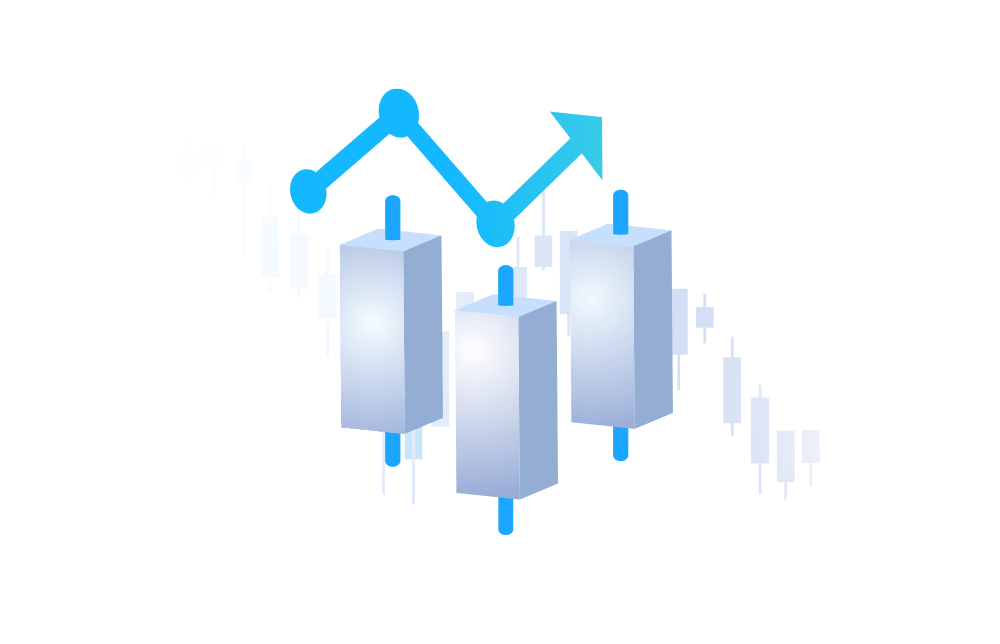Trading Futures vs. Stocks: Key Differences
Date Modified: 10/20/2024
Both stock trading and Futures trading are means of investing that provide access to a plethora of financial markets that may interest many market watchers and traders alike. Nonetheless, while these two types of trading share some similarities, they can also differ greatly. Here’s what you need to know about the differences and nuances of stock vs. Futures trading:

What Are Stocks?
Stocks or equities are company securities that give shareholders a fraction of the company and sometimes the right to vote. It is common for companies to issue stocks in order to raise funds for their operations.
It is important to note that stocks are divided into common and preferred stocks. Whereas preferred stocks usually do not grant shareholders voting rights, common stocks do. As such, common stockholders are prioritized over preferred stockholders in case of bankruptcy.
What Are Futures Contracts?
Futures contracts are legal agreements between two parties to buy or sell a certain underlying asset at a fixed date and price in the future. Futures offer access to a wide range of markets. As such, the traded underlying asset can range from Forex to Indexes and Interest Rates to Commodities and more. Furthermore, when one enters into a Futures contract, he or she does not have to pay for the full price of the underlying asset upfront. Instead, for each contract, a certain amount of money is set aside, known as margin, which varies from one Futures provider to another based on factors such as the types of Futures contracts.
If you’d like to learn more, check out our comprehensive article “What Are Futures and How Do You Trade Them”.
Futures Contracts Expiration
Whenever you trade Futures contracts, you should keep in mind that they have an expiration date after which any outstanding contracts are settled either financially or physically. However, whereas Futures contracts have an expiration date, shares of stocks do not. This is because broadly speaking, investors can hold shares for as long as a company remains publicly traded.
Moreover, to better understand how Futures contracts’ expiration dates work, traders should note that each contract month has its own symbol. In addition, the Futures’ underlying assets have a symbol of their own too. These symbols go as such: January (F), February (G), March (H), April (J), May (K), June (M), July (N), August (Q), September (U), October (V), November (X), and December (Z). Accordingly, a Futures contract called “CLZ7” represents a Crude Oil Futures contract that expires in December 2017. To understand Futures contracts’ expiration dates better, see our article: terms and symbols in futures trading.
Differences in Margin When Trading Futures vs Stocks
When looking at stock trading vs. Futures trading, one factor to keep in mind is the margin. While margins can be used in both Futures trading and stock trading, they differ significantly from one type of trading to the other. In Futures trading, a Futures margin refers to the amount of money that must be set aside as collateral before a Futures position can be traded or maintained.
This differs from a stock margin since the latter means that traders have to borrow money through leverage in order to purchase a stock. Essentially, the margin is a loan from the brokerage firm that allows investors to buy more stock than they might normally be able to.
Advantages of Trading Futures Versus Stocks
The advantages of Futures trading versus stock trading may be worth considering when comparing them and can also help determine whether Futures trading is suitable for you.
Minimum Investment Required
For many, the fact that Futures trading generally requires minimal margin when compared to stocks can be an attractive option for those who are looking into diversifying their portfolio for relatively lower costs.
Access to Diverse and Highly Liquid Markets
It is no secret that Futures trading allows access to a plethora of financial markets including Crypto, Commodities, Indexes, Forex, and Interest Rates. This differs from stock trading whereby traders get to trade on stocks only rather than the aforementioned markets. In addition, Futures markets are considered to be highly liquid since they are heavily traded on a daily basis. This also lowers the chances of drastic price fluctuations from happening. Accordingly, for traders seeking entry into multiple and potentially liquid markets, this could be of interest. Remember, however, that past performance does not guarantee future results.
Leverage
The advantage of leverage in Futures trading may attract many traders since it allows them to control high-value assets with a modest amount of capital. Leverage can be deemed as a perk since it means that traders can potentially maximize their gains with a small amount of margin. Nonetheless, traders should keep in mind that leverage also comes with the potential risk of maximizing your losses if the prices of the underlying asset go against your Futures contract prices. In other words, when comparing stocks vs Futures, one may note that futures trading allows investors to expose themselves to higher stock values than they would if they bought the original stocks.
Around-the-clock Trading
Unlike stock trading which takes place within specific time frames and days depending on the type of market and region, Futures trading occurs around the clock. Broadly speaking, Futures can be traded almost 24 hours a day for 6 days a week, providing traders with more flexibility to make decisions whenever they want.
Potential Futures Tax Advantages
There is the possibility of a preferred tax rate when trading futures. This is based on the 60/40 rule, according to which 60% of net gains on Futures trading are considered long-term capital gains and 40% as short-term capital gains taxable as ordinary income.
Conclusion
Knowing whether Futures trading is the right option for you depends on your goals and expectations. If the above-mentioned possibilities speak to you, then trading Futures with Plus500 may be your answer.
